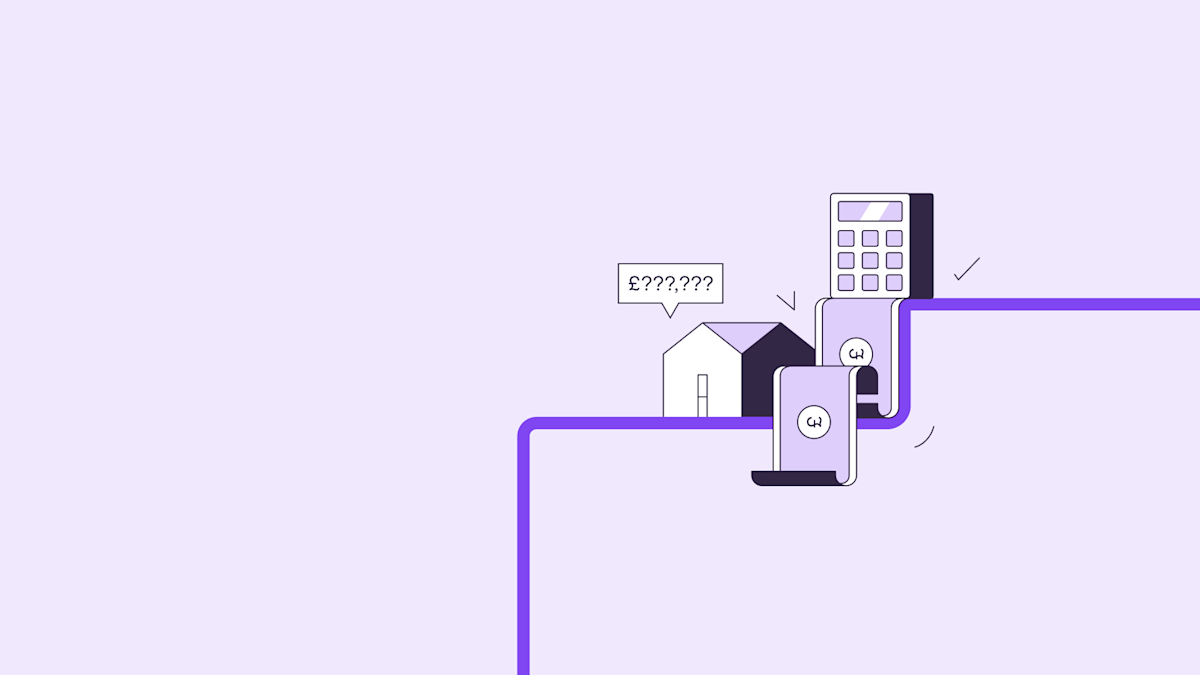What is a property chain?
A property chain begins with someone who is buying a home (usually a first-time buyer, but not always) and ends with someone who's selling one.
How many 'links' or buyers and sellers there are in between can vary within each chain.
How does a property chain work?
A property chain is when a group of buyers and sellers are linked together, because their purchase or sale depends on each other.
All of the sales in it must happen at exactly the same time for everyone to be able to purchase their desired new home.
If something goes wrong along the chain, it can collapse in a domino-style effect, affecting everyone within it.
Even first-time buyers feel the impact of a chain, despite having no buyers and sellers below them, because the party they are buying from may be affected by the sellers of the house they are buying from and so on. This is known as an ‘onward chain.’
Any property chain can only progress as fast as the slowest link will allow, so staying on top of everything is essential for ensuring the chain succeeds.
Find trusted conveyancers in minutes – no stress, just results
Save time and money with our quick and easy comparison tool, designed to connect you with trusted conveyancers across the UK.
Trusted by thousands of UK homebuyers.

Can I avoid a property chain?
Yes. If you're already a homeowner, you might think about selling your existing home and renting a place in the short term, so that you're chain-free at the point of taking your next step on the housing ladder.
If you're able to find a seller who's also not in a chain (because their sale isn't dependent on them buying another property), you're effectively chain-free and the transaction will be much less complicated to manage.
Other ways of avoiding a property chain include buying a new-build home directly from a house builder.
You could also think about snapping up a property at auction, though you might need a good budget for renovations.
Save money with Mojo Mortgages
Allow award-winning Mojo to show you the best rates available to you. A whole-of-market broker, Mojo work with over 70 lenders. And they won't charge you a penny for their services.

Reasons for a property chain collapse
There are many reasons why a sale may fall through somewhere along the chain, for example:
One of the buyers can't get a mortgage
One of the sellers changes their mind and takes their property off the market, having already agreed a sale
One of the parties is made redundant and can no longer afford to move
One of the buyers pulls out after a survey throws up costly repairs on the house they wanted
Gazumping and gazundering also play their part.
Gazumping is where a seller accepts an offer from one buyer but then takes a higher offer from someone else at the last minute, thereby scuppering the sale.
Find out more about what you can do to avoid being gazumped
Gazundering is where a buyer reduces their offer at the last minute, often just before exchange, which may result in the seller being unable to accept it and the chain breaking.
Check out our jargon-buster for more details
What to do when a property chain collapses
If your property chain collapses, it can be a stressful and uncertain time, but there are several actions you can take to navigate the situation:
Negotiate with the seller: If you're purchasing another property but the sale of your own home has fallen through, you can still try to negotiate with the seller of the property you're interested in. They may be able to give you more time to find another buyer, especially if you've already had surveys and searches done. Speak to your estate agent pronto and let them know you're keen to find another buyer as soon as possible.
Look for alternative properties: If the seller of the home you want to buy pulls out, it may be a good time to search for alternative properties.
Approach alternative lenders: If your chain has collapsed because your mortgage lender has downvalued the home you want to buy, you can approach alternative lenders to see if they'll place a higher value on the property and lend you the mortgage you need to buy it.
Speak to your solicitor or conveyancer: Get legal advice to understand the implications of the collapse and how to handle the situation legally. Your solicitor can help you understand what rights you have and if there are any penalties involved. They may also help you identify the next best steps.
Consider a chain-free option: Explore the possibility of a chain-free purchase, such as a new-build home. Or if you're selling, you may want to secure a chain-free sale, such as to a cash buyer. Both options can simplify the buying and selling process and avoid the complexities of a chain.
It is possible to buy specific home buyer's protection insurance, which will pay out if your purchase falls through, but make sure you read the terms, conditions and exclusions thoroughly.
Collapsed property chains can prove costly, as you may have already shelled out for a survey, searches or even legal fees, not to mention the heartbreak felt at losing your new dream home. So...
Know your budget in 2 minutes
Discover your maximum borrowing power
Establish your monthly repayments
See homes you know you can afford
With no fees and no credit checks on your finances.

How to keep a property chain moving
If you do find yourself in a property chain, here are some steps you can take to minimise the chances of it collapsing.
1. Keep communicating
Communication is everything. Make sure you're in regular contact with your solicitor, estate agent and mortgage broker.
Push for regular progress checks and respond promptly when you’re required to provide information.
Doing this will help to build good relationships with your buyer and seller, which increases the chance of holding a chain together.
It becomes harder to let somebody down once you’ve established a rapport.
2. Be organised
Get your finances in place and line up experienced professionals, such as a conveyancer and mortgage broker, to advise you. And keep a record of all correspondence.
Being organised enables the process to move along more speedily, meaning there's less chance of things going wrong.
Find out more about what a conveyancer does
3. Get involved
If you discover that someone in the chain has pulled out because of money issues, you could try getting everyone in the chain to agree to a lower sale price.
Persuading all parties it is of mutual benefit will be no mean feat, but there are occasions where this has worked.
4. Ask your seller to rent
If the seller of the home you want has lost the home they want to buy and is telling you they're stuck, it's worth asking if they might consider renting in the short term, so that the sale can still go through.
This would put them in a stronger position when it comes to finding their next home, since they won't be dependent on a sale to secure it.
If you're really keen on their property and don't want to let it go, you could even offer to give them a few months' rent as a sweetener.
How much could my mortgage repayments be?
Get a quick idea of how much it's going to cost each month or how a rate change could affect your monthly payments.

What does no onward chain mean?
A property with no onward chain is essentially chain-free, which reduces the risk of delays and complications.
Being chain-free simplifies the process of buying a home, as you're only reliant on one seller, rather than multiple buyers and sellers, for the transaction to go through.
How long does it take to sell a house with no chain?
It can take between 4 to 12 weeks to sell a house with no chain. That's because the buyer will still need to bring in a solicitor to conduct the necessary searches on the property, and a surveyor to check on the condition of the home being sold.

